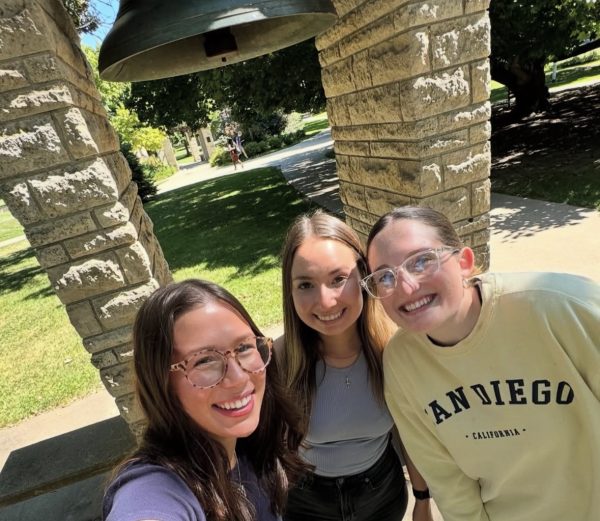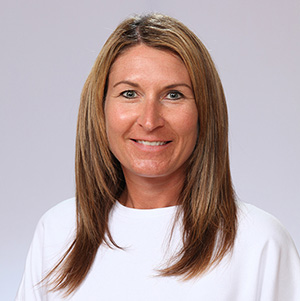Luther Wellness Screens “If They Had Known” to Open Conversations about Luther Alcohol and Drugs Policies
On Wednesday, April 7, the Luther Wellness Program sponsored a screening of the film “If They Had Known,” which covers a college student, Clay Soper, that died from drinking alcohol after taking a Xanax at a party. The film follows Soper on the night of the party, as told by his friends and family, and the impact of his death on their lives.
Soper lived in Winchester, Massachusetts, and attended the University of Denver. One day, he and his friends decided to take Xanax, a prescription depressant. They then went to a party where they drank alcohol. When Soper started stumbling and slurring his speech, his friends thought he was just drunk and told him to go sleep it off. He would never wake up.
After some time, his friends realized Soper wasn’t breathing. The group called an ambulance and watched as their friend was rushed to the hospital, where he died. Soper’s parents recounted telling their other children that their brother passed away
Following the screening, a conversation was held to discuss the dangers of mixing alcohol and prescription drugs. One of the biggest themes throughout this conversation was medical amnesty and the “good samaritan” policy.
Medical amnesty guarantees that underage individuals will not be prosecuted for alcohol consumption if they seek medical assistance. The good samaritan law ensures that those who seek medical attention for someone in need will not face legal repercussions. This means that even if someone has been underage drinking, they are automatically exempt from any penalties of underaged drinking if they seek assistance for a friend in an emergency.
“Medical amnesty is not viewed as an avenue through which a student may escape responsibility, but rather as an opportunity to reflect on their decision-making process related to their use of alcohol and/or drugs,” Luther College Student Handbook states. “The goal of amnesty is to increase student awareness of the risks of alcohol or other drug overconsumption and to reduce the instances that require acute emergency care.”
Health Education and Promotion Coordinator Jessica Rupp was involved in planning this event and helped lead the discussion afterward. Rupp’s position was created in 2019 in an effort to increase prevention outreach and education at Luther. She works with mental health and resiliency, Title IX and violence prevention, physical health and wellbeing, and substance abuse prevention.
“From the discussion last night, we were able to see that a lot of students and community members are not aware of the risks [associated with mixing alcohol and prescription medicine],” Rupp said. “A lot of students take medications that are prescribed to them, but they maybe never had those conversations with their doctor or pharmacist about what mixing alcohol with their medications could do. It’s just an important thing we need to bring more awareness to.”
In 2019, Luther students participated in the National Health Assessment run by the National College Health Association. In this national survey, 5.5% of students reported they had used prescription stimulants like Adderall, 2.2% used prescription opioids, and 2.6% used prescription depressants like Xanax.
“This is an issue that affects our students,” Rupp said. “We do have students who drink alcohol on our campus, so understanding the risks of mixing those two and bringing attention to it is not something we have spent a lot of time talking about. I brought it up at the event that we do talk about harm reduction with alcohol a lot, but not necessarily what it means to mix substances and what could happen.”
Brooke Kunkel works at Helping Services and was also involved with planning the event. Helping Services is a nonprofit that focuses on prevention, family education, mentoring, and domestic violence advocacy. Kunkel is the prevention coordinator for the state Opioid Response Grant, and offers training and education on psychostimulants, opioids, and the stigma associated with substance abuse disorders.
“People don’t realize the harms and effects of mixing alcohol and prescription drugs, even ones prescribed to you,” Kunkel said. “I would say that for college kids especially, they think they’re invincible. I was just recently in college, and I didn’t think about it. It was eye-opening to me that it could have been one of my friends or someone I know.”
Grace Weinrich (‘21), an intern at Helping Services, heard about the event from Kunkel and recognized the importance of the event.
“We often learn about alcohol abuse, and we often learn about drug abuse, but we don’t really learn about them together as often as we should,” Weinrich said. “I think this is an important message for everyone to hear about that connection, especially when you bring in prescription medications.”
In a college setting, this may be a familiar situation. However, the results of mixing these two substances can be catastrophic. Any amount of consumption can be fatal.
“Thinking about the documentary, it was college-age students,” Weinrich said. “I hope that’s not a situation that happens at Luther, but I think it’s important that we talk about it. The whole idea is preventing things before they happen. It is important that Luther students hear this message so we can avoid situations like that.”
Students who witness or suspect that anyone has taken prescription drugs with alcohol and is experiencing loss of motor function, or slurred speech is encouraged to call 911. Students will not be punished for seeking help for a friend in need, as this action could save their life.
Kunkel is also hosting a panel discussion on substance abuse prevention on April 21. Anyone who wants to have Kunkel present to a class or club is welcome to contact her or Helping Services.





